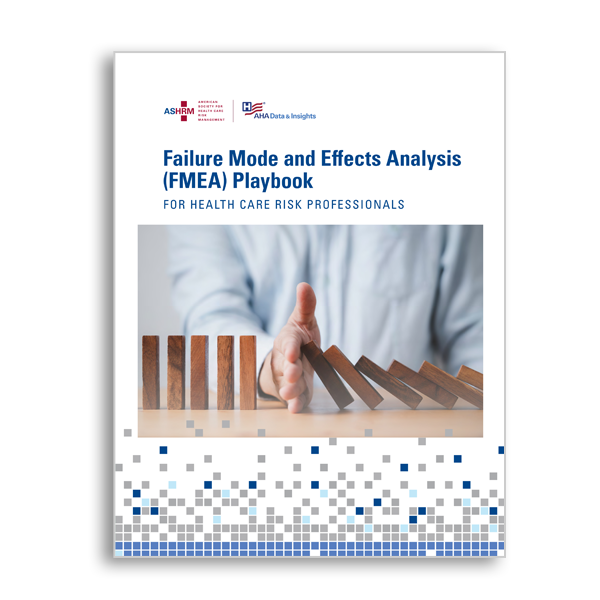Failure Mode and Effects Analysis (FMEA) Playbook
Member: $149.00
The Failure Mode and Effects Analysis (FMEA) Playbook gives organizations the concepts and strategies to avoid adverse events that could potentially cause harm to patients, families, employees or others in the patient care setting.
Coming Soon in ePub Format
Playbook Description
By identifying and addressing potential failures proactively, the Failure Mode and Effects Analysis (FMEA) Playbook gives organizations the concepts and strategies to avoid adverse events that could potentially cause harm to patients, families, employees, or others in the patient care setting. This playbook provides tools to help maximize proactive efforts while minimizing the need for the reactive side of risk management.
Chapters:
1. Overview
2. FMEA terms and steps
3. Case study using the FMEA process
4. FMEA practice with a non-medical example
Questions? Contact ASHRM@aha.org
Look Inside the Failure Mode and Effects Analysis(FMEA) Playbook



